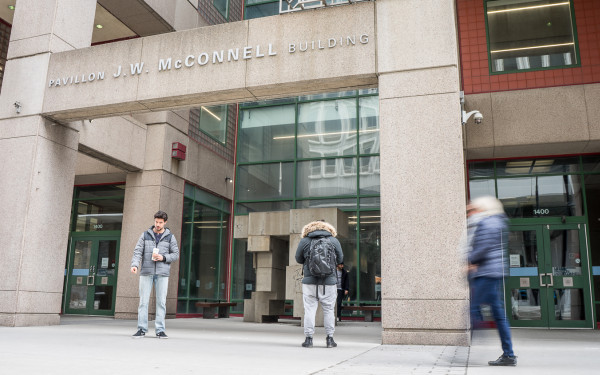Attorney General of Quebec appeals historic trans & non-binary rights win; CGA to fight back
Centre for Gender Advocacy says appeal is “discriminatory” and upholds barriers for trans youth
After the Quebec Superior Court landmark ruling on Jan. 29, which granted various rights to transgender and non-binary individuals in Quebec, the province’s Attorney General announced that she would appeal it. The announcement was made via a press release on March 5. Two weeks later, on March 18, Concordia’s Centre for Gender Advocacy announced they will be fighting back.
The landmark ruling was celebrated by trans people across the country, and was seen as a significant victory in the fight for the legal protections of trans parents, trans youth, trans non-citizens and non-binary individuals.
Read more: Historic Superior Court win for trans and non-binary individuals in Quebec
The Attorney General’s appeal opposes a specific paragraph of the landmark ruling: “Section 23.2 of the ‘regulation respecting change of name and other particulars of civil status.’—which gave trans individuals, between 14 and 17, the right to change their gender legally without having to first seek evaluation, and a subsequent letter, from a designated medical professional. The Attorney General argued against the Superior Court’s decision, stating that the medical evaluation was necessary to “confirm the seriousness of the steps taken by the child, in their best interest.”
In a press release, the CGA called this appeal “disappointing”, and that it “violates the equal rights” of these trans individuals. Furthermore, since individuals over the age of 18 do not require the letter, it discriminates against teenagers on the basis of age, which is a “prohibited ground of distinction under both the Quebec Charter of Human Rights and Freedoms, and the Canadian Charter of Rights and Freedoms,” said the CGA.
The CGA highlighted that trans youth face barriers in obtaining letters from these professionals. Trans individuals often face difficulties in obtaining employment under their true gender, and this prohibits them from accessing the private healthcare system, said the centre.
There are long pathways to obtaining medical care for transition—individuals often have to endure year-long waiting lists, the CGA added.
The centre has called the requirement for a letter an “obstacle,” and that it “serves no useful purpose,” but that it also traps young trans individuals into being forced to wait until they are 18 before transitioning. They use the example of N.T.G—an individual involved in the trial whose name was redacted because they were a minor during the time of the trial.
N.T.G knew from a young age that his true gender did not match his sex designation at birth—he approached three medical professionals before finding one who was knowledgable about trans issues, and would grant him the letter.
“The other professionals were either not comfortable with the issue or tried to persuade him against going ahead,” the CGA stated.
Read more: Quebec To Be Taken to Superior Court for Alleged Discrimination Against the Trans Community
In addition to fighting back against the Attorney General’s appeal, the CGA will also be filing a cross-appeal against the Superior Court’s decision to not strike down a parent’s ability to veto a child’s name-change, which was one of the few let-downs in the initial landmark ruling.
“By invoking or threatening to the use of this veto, this effectively forcibly postpones an often life-saving name change by what can often amount to be years, or alternatively forces an already extremely vulnerable youth to testify in court in order to even have a chance at getting it.” the CGA said. The centre also mentioned these individuals also often face burdens imposed by intersectionality and poverty that make it harder for them to legally exercise their rights.
Another let-down in the initial landmark ruling was the Superior Court’s decision to uphold the requirement to designate the sex of a baby at birth without exception, even in the case for intersex individuals. However, the CGA announced they will not be appealing this decision—they decided this after consulting with lawyers and with two intersex activists.
“This decision, which will certainly be disappointing for some, wasn’t taken lightly, and was made in the best interests of the intersex community: we strongly hope that we will be able to build a more inclusive future with them, and will be able to join them in future fights for justice,” the CGA said.
The CGA said that there is clearly a long road ahead in the fight for obtaining legal protections for intersex, trans and non-binary individuals, regardless of age. They plan to continue to actively fight in order to guarantee that the Quebec government will make the necessary legislative alterations in the Civil Code, and in any other relevant legislations, in order to “ensure equality for all.”
“We invite the Quebec government to be leaders in this fight and to work with our communities for justice and a complete solution to the issues raised in this case and beyond,” they said.

_900_600_90.jpg)





_600_375_s_c1.png)